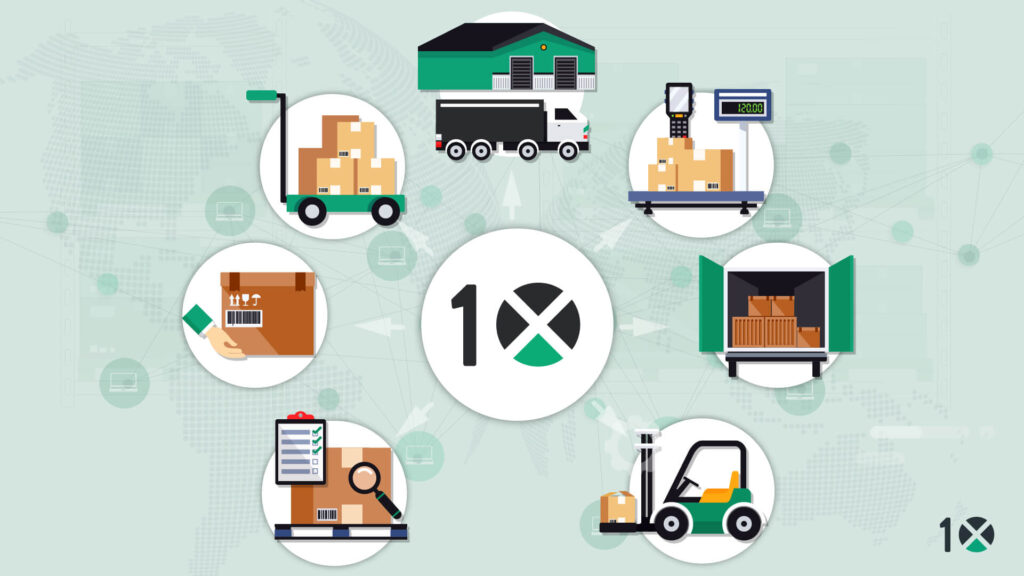Summary
- ERP systems help distributors streamline operations, understand customers, and manage inventory efficiently in the e-commerce realm.
- Modern ERPs integrate with e-commerce platforms, automating data synchronization to save time, reduce errors, and support growth and customer service enhancements.
- ERP advancements, including AI and machine learning, are set to revolutionize e-commerce operations, offering sophisticated tools for analysis, management, and personalized customer engagement.
In the rapidly evolving world of e-commerce, distribution businesses are increasingly turning to Enterprise Resource Planning (ERP) systems. These systems serve as a multifaceted tool, enabling businesses to streamline operations, gain insights into customer behavior, and manage inventory more effectively. This article explores how ERP systems can be a game-changer for these businesses, particularly in adapting to the digital marketplace.

Seamless Integration with E-commerce Platforms
Modern ERP systems are pivotal in e-commerce because they seamlessly integrate with various online platforms. This game-changer integration automates data synchronization across product listings, orders, and customer information. It effectively eliminates the need for manual data entry, significantly reducing the likelihood of errors and saving substantial time. This automation allows businesses to concentrate on growth and enhancing customer service. By ensuring consistency in data across different platforms, ERP systems help businesses maintain a unified and efficient online presence, which is crucial for thriving in today’s digital marketplace.

Customer Data Analysis for Tailored Marketing
ERP systems are invaluable for analyzing the wealth of customer data generated in e-commerce. This analysis facilitates a deep understanding of customer preferences and purchasing patterns, enabling businesses to develop highly tailored marketing strategies. By leveraging this data, companies can anticipate market trends and align their offerings accordingly. This approach leads to more effective marketing campaigns, directly contributing to increased customer engagement and retention. The ability to personalize marketing efforts based on reliable data is a significant advantage that ERP systems provide, helping businesses stay ahead in the competitive e-commerce landscape.

Real-time Inventory Management for Online Sales
In the world of e-commerce, managing inventory in real-time across various sales channels is crucial. ERP systems excel in this area by immediately updating inventory levels following each sale. This capability is vital in preventing the common issue of overselling products that are no longer in stock. Additionally, ERP systems incorporate predictive analytics, enabling businesses to forecast future inventory requirements accurately. This foresight ensures that companies remain well-equipped during peak sales, avoiding stock shortages or excesses and maintaining a smooth flow of operations.

Supply Chain Optimization
ERP systems extend their utility beyond basic internal operations, significantly enhancing the entire supply chain for e-commerce. They simplify and streamline supplier relationships and procurement processes, essential for the timely fulfillment of e-commerce orders. This optimization reduces lead times and improves demand forecasting accuracy, ensuring businesses can efficiently meet customer demands. An effectively managed supply chain powered by an ERP system boosts operational efficiency and contributes to overall customer satisfaction and business growth.

Financial Management and Reporting
Efficient management of financial transactions is a cornerstone of successful e-commerce operations, and ERP systems are instrumental in this regard. They automate crucial processes such as invoicing and payment tracking and seamlessly integrate with various payment gateways. The robust reporting capabilities of ERP systems provide valuable financial insights, facilitating informed strategic decision-making and planning. This comprehensive financial data management ensures accuracy, transparency, and compliance, empowering businesses to maintain financial health and stability in the dynamic e-commerce sector.

Compliance and Security in E-commerce
In the ever-evolving e-commerce landscape, adherence to data privacy laws and financial regulations is paramount. ERP systems are equipped to ensure compliance with these requirements while offering robust security features. They protect sensitive customer and business data, an essential aspect given the increasing cyber threats in the digital realm. By maintaining high data security and regulatory compliance standards, ERP systems give businesses the confidence to operate safely and securely in the online marketplace.

Mobile Accessibility and Cloud-based Solutions
The advent of cloud-based ERP solutions has brought remarkable flexibility and scalability, which is especially beneficial. The mobile accessibility of these systems ensures that business owners can manage e-commerce operations from any location, a critical factor for rapid response to market changes and opportunities. This level of accessibility and adaptability makes cloud-based ERP systems an ideal choice for businesses looking to expand their reach and adapt quickly in the fast-paced e-commerce environment.

Future Trends and ERP Evolution
Looking into the future, ERP systems are poised to incorporate cutting-edge technologies like Artificial Intelligence (AI) and machine learning. These advancements will further refine and revolutionize e-commerce operations. Businesses can expect even more sophisticated tools for market analysis, inventory management, and customer engagement. The integration of these technologies will provide deeper insights, enhance operational efficiency, and open new avenues for personalized customer interactions. The evolution of ERP systems represents a significant stride towards more intelligent and responsive business management in the e-commerce domain.
Conclusion
For distributors, an ERP system is not just a technological investment; it’s a strategic tool for navigating the complexities of the e-commerce landscape. By embracing ERP solutions, businesses can enjoy streamlined operations, enhanced customer insights, and improved financial management. As the e-commerce sector evolves, ERP systems will remain central to managing these changes effectively, positioning businesses for sustainable growth and success.
Contact us for inquiries or to discover how 10X ERP can enhance your e-commerce and distribution strategies with our cloud-based solutions. Let 10X ERP help your business achieve scalable growth and efficiency.
